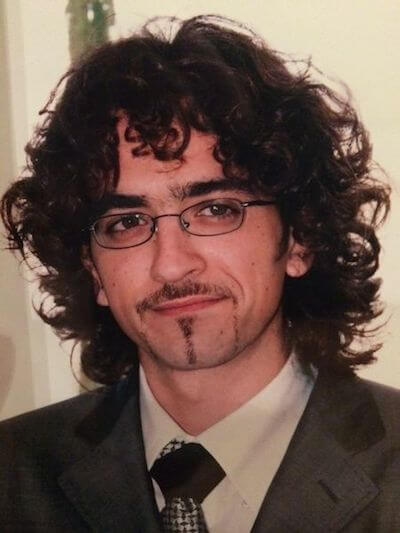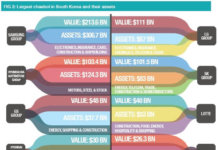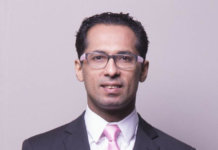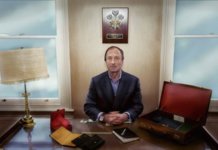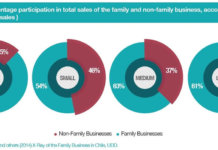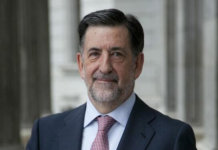Consolidated Engineering and Trading (CET) is one of Lebanon’s foremost construction businesses. Established in the late 70s by founders Michel Choueiri, Gabriel Choueiri and Adib El-Horr, the business has expanded to include over a thousand workers and a new generation of family members positioned firmly at the helm. Executive Manager Elie Choueiri, a second generation family member and design director at CET, spoke to Tharawat magazine about the advantages of combining two families under one corporate roof, the challenges of working in an unpredictable environment, and how the family business can be a platform for realising individual ambitions.
Joining the family business
Elie Choueiri always knew that he would join the family business while pursuing his architecture studies in Lebanon. When he began working for the family business with his father, he arrived directly from university without any prior work experience. “Today, I would go for an outside experience before joining the family business,” he says. “No matter how professionally you behave you are always the son of the owner. An outside experience teaches you what it is like to be one of many employees in a corporation without experiencing the advantages of family connections.”
{mprestriction ids=”1,2,3″}
Elie Choueiri’s motivation to join the family business stems from the undying support he received from his father and uncle, who together with their friend Adib El-Horr founded the business in 1977 in the face of adverse circumstances. “My father and uncle started working in the States and met the co-founder Adib El-Horr there in the mid-seventies. During the war in Lebanon many people left the country, my family stayed on and built the business,” he explains proudly.
The second generation cousins’ consortium
The current state of the CET family business is comprised of a unique build. Due to the founders consisting of brothers Michel and Gabriel Choueiri and their friend Adib El-Horr, the second generation is now made up of Choueiri family cousins and the children of El-Horr. This makes the second generation not only a cousins’ consortium but also includes two family branches. When we ask Elie Choueiri whether this arrangement has amounted to a complicated situation he smiles. “I work together with my cousin and Adib’s two children. At first it was hard to understand the dynamics between us but we always had our parents there to help us. We became more mature and have a better understanding of how we need to interact,” he states.
Combining innovation with wisdom
With a blend of family dynamics interacting successfully, the pool of knowledge and potential innovation seems endless for CET. Elie Choueiri’s view on this takes into account the complexities of tapping into the older generation’s acumen while allowing innovation to flourish amongst the younger family members.
”When we started to work we realised that the older generation members have their own ways of doing things,” he recalls. “We felt that the way they dealt with the different departments was a little old fashioned. We started to introduce new software and at first it was a bit difficult for them to grasp the new technology but we needed to expand our business. We had more people and bigger projects to manage,” Elie details. He proudly relates the first generation’s wisdom in accepting these changes. “This shows how smart they are. They understood the value of what we were trying to do.”
But how does the second generation determine which changes to the enterprise are necessary and which innovations are implemented solely for the sake of doing so? “There were changes that just clearly showed themselves as needed. My parents always asked us to bring them business plans in order to make sound decisions. Also because we are based in Lebanon things go rather slow anyway. Therefore change happens over a considerable span of time allowing everyone to get used to it,” offers Elie Choueiri.
Over the years Elie Choueiri has observed many family businesses that have not been as lucky due to fights erupting between the generations. Elie feels that the wisdom of CET’s founders lies in accepting change, even when it arrives in shapes they do not initially understand. He greatly attributes this capacity to the first generation building a successful business during a devastating war. “They used to work under the bombs and the threat of snipers and they definitely developed a sense of relativity. So, even when something is not working they feel very optimistic that they can succeed because they lived through so much adversity.” Elie’s generation has preserved a great sense of admiration for their parents’ achievements, which fed considerably into their sense of obligation to return to the family business after their studies abroad. “I can’t let my dad down,” he emphasises.
Value-based unity
Two families working as a single business entity is known to be a recipe for soaring success or heartbreaking disaster. In a fruitful scenario, the family branches join together like two streams to form a mighty river. Such is the case at CET explains Elie Choueiri. “There is a union in values between our two families! All members from the second generation, Choueiri and El- Horr alike, studied abroad. Before that we grew up together in Lebanon so we have a lot of history. Our bond has always been strong. Sometimes at work, of course, we encounter difficulties but who doesn’t? Because Adib El- Horr unfortunately died early, his children work in a different way than we do as they do not have the direct reference to a parent in the company,” he outlines.
He goes on to explain that a joint family business culture resulted over time. The foundation of this labour can be found in the similar values the families shared from the outset. “Today, we all agree that we are successful because we have remained a privately owned company. This also allows us to navigate the current situation in Lebanon,” Choueiri declares. The family’s reputation has been reliably strong in recent decades, allowing CET to expand its construction business despite abounding economic turbulence.
What the future holds
CET’s plans for the future certainly include retaining family-ownership. However, Elie Choueiri modestly declares that he knows that there are no guarantees for this and that the next generation should be free to choose. “We wonder sometimes what will happen with the next generation because they will have different dynamics,” he says. “I don’t think that there is going to be a problem but there are always gaps that can become wider. If our children want to continue the business they are welcome to do so, of course.”
Elie Choueiri, his cousin Karim, and Dani and Karim El-Horr co-manage the business under the tutelage of Michel and Gabriel Choueiri. “We did a bit of everything initially and each of us had projects. Today, we all head departments and I am an executive manager and the head of the design department,” Choueiri explains. “I will always be an architect. My father understands this so as part of our growth strategy he assigned me an architectural role expanding these activities within the business,” he illustrates, plainly delighted by his father’s ability to combine the business’ interests with the fulfillment of his son’s ambitions. “That’s when the family business is at its best; when we can all add our expertise and passion and have the freedom of reaching our potential.”
The current war in Syria and its effects on Lebanon have created an environment that is unpredictable; one which forces the family business to be as vigilant as it is patient. With over one million Syrian refugees entering the country since the conflict’s outbreak labour costs have decreased, yet projects are being stalled for safety reasons. “The fear of another war is deep within us and is something we deal with every day,” confesses Choueiri. “But we will continue our work like our parents have before us and build on the reputation we have to ensure a legacy for the next generation.”
Tharawat Magazine, Issue 22, 2014
{/mprestriction}


